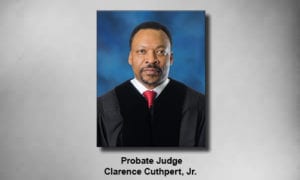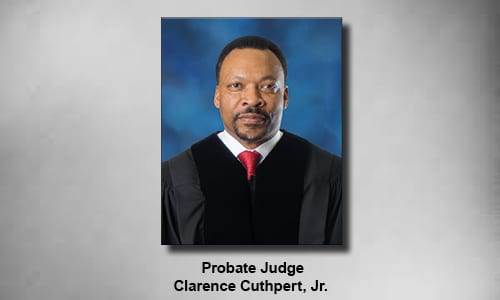
By Judge Clarence Cuthpert, Jr.
Fiduciary responsibility refers to the obligation that one party (“the fiduciary”) has to another (“the principal”) to act in his or her best interest. The various laws created to reduce abuse by fiduciaries provide assurance to principals that they will be protected from unscrupulous individuals pretending to act in their best interest.
Guardians and conservators serve as fiduciaries for incapacitated adults. Serving as guardian requires the fiduciary to manage the ward’s healthcare, general well-being, place of residency, care and support needs, and at all times, act in the ward’s best interest. Conservators must manage the inventory and assets of the ward, and maintain the necessary documents to support any and all expenditures. There are specific laws governing the duties and responsibilities of guardians and conservators in this State. Failing to satisfy their obligations will result in the guardian and/or conservator being removed by the Court.
Administrators and executors are also fiduciaries. They are required to act in the best interest of a deceased person’s estate to ensure that the assets are distributed according to their wishes, or in accordance with the law. The person(s) appointed to each of these positions are closely scrutinized to ensure that they meet their fiduciary responsibilities.
Fiduciaries may access and manage the principal’s digital assets as well. However, the fiduciary cannot use their authority to impersonate the principal. A fiduciary with the authority over the tangible personal property of a decedent, protected person, principal, or settlor (a person who makes a settlement, especially of a property), have the right to access the principal’s property and any digital asset stored in it, and obtain information from the custodian of an account for the purpose of terminating the account.
The information included herein is only intended to address some of the duties and responsibilities of a fiduciary and provide a basic understanding of the same. This information is not all inclusive, and should not be used as or considered to be legal advice.
Throughout each month, the clerk of courts, tax commissioner, sheriff and probate judge—Rockdale’s elected constitutional officers—discuss topics relevant to their respective roles.


![Validate my RSS feed [Valid RSS]](https://web.archive.org/web/20240108205913im_/https://ocgnews.com/wp-content/uploads/2022/07/valid-rss-rogers.png)


